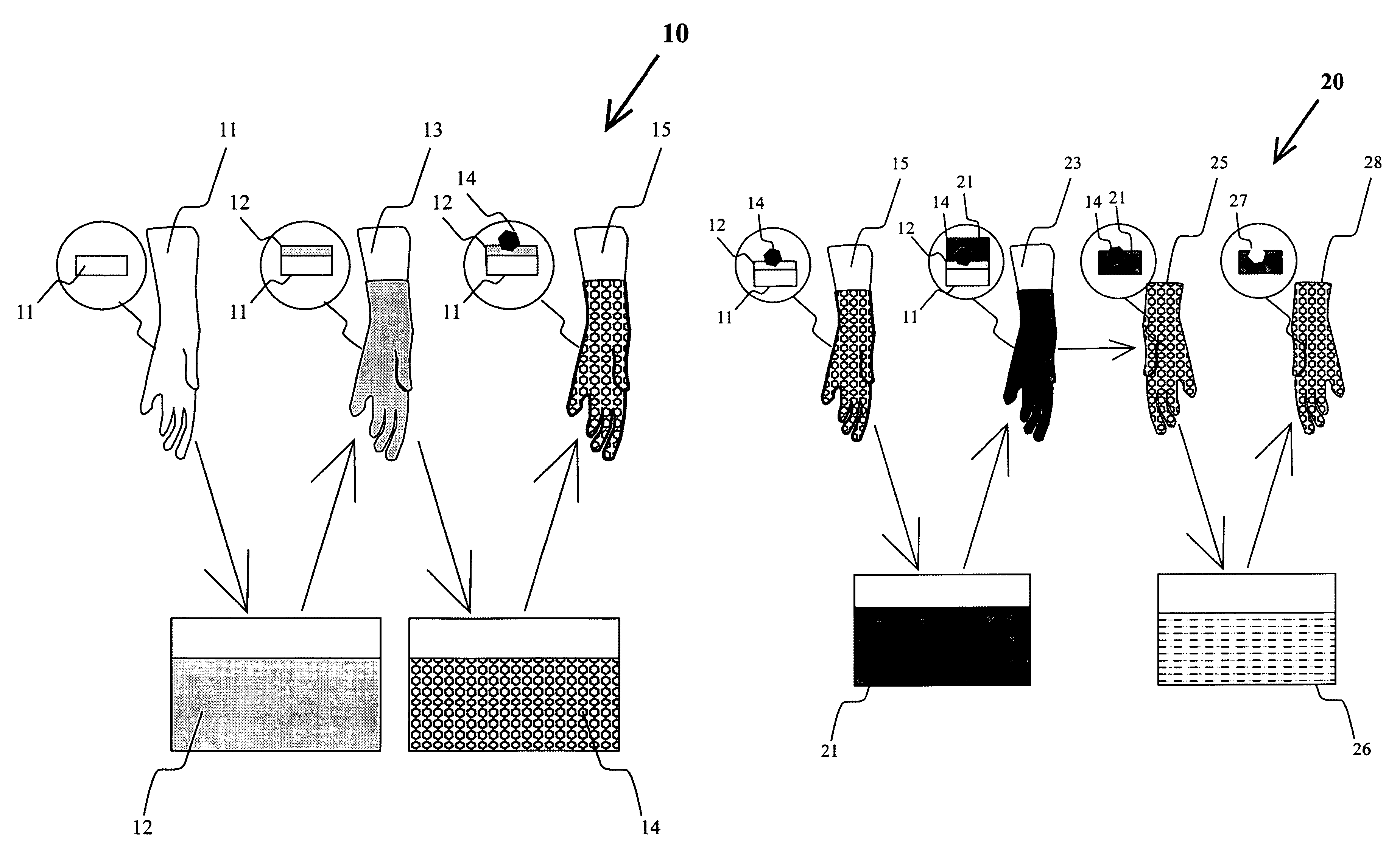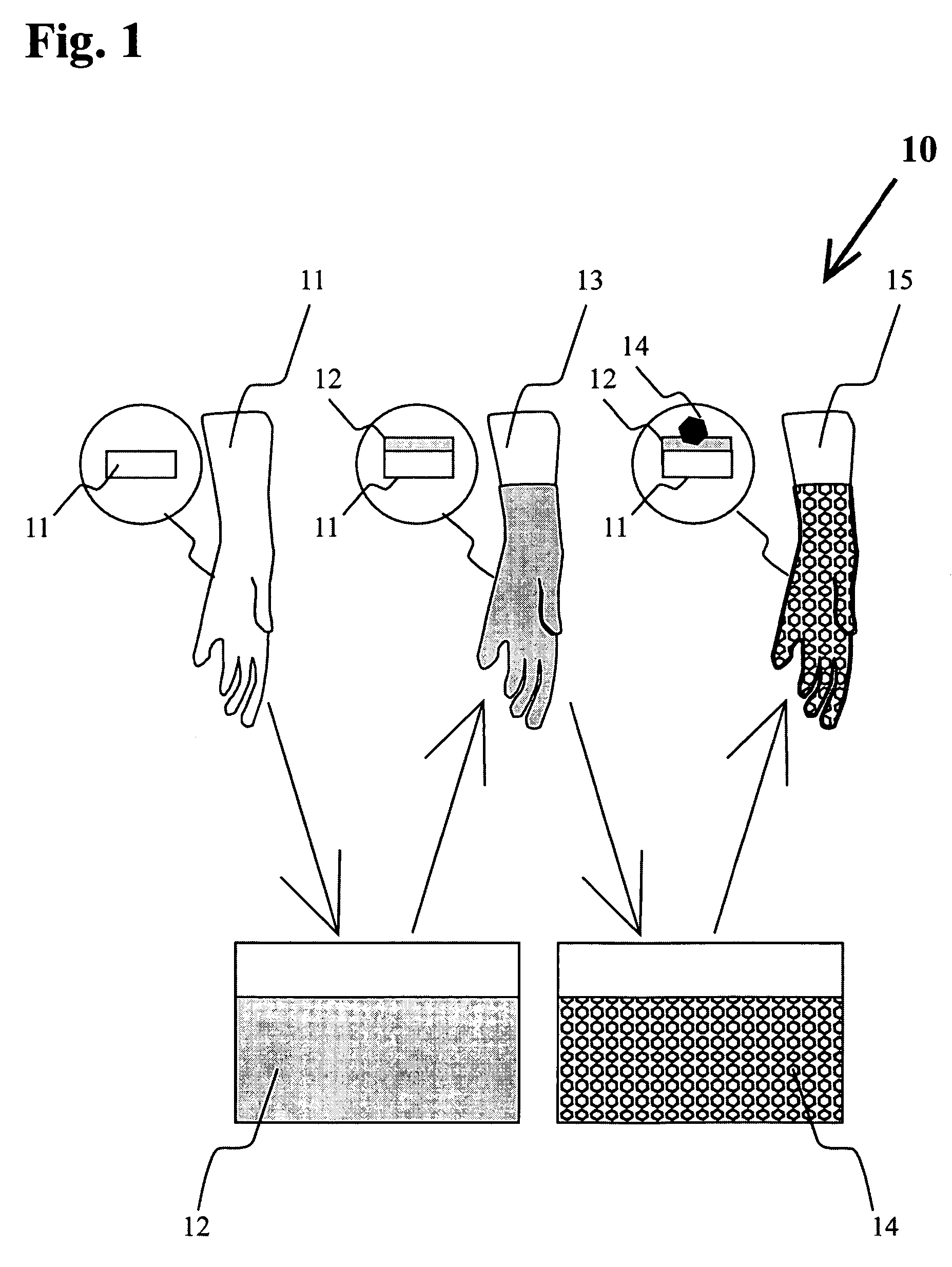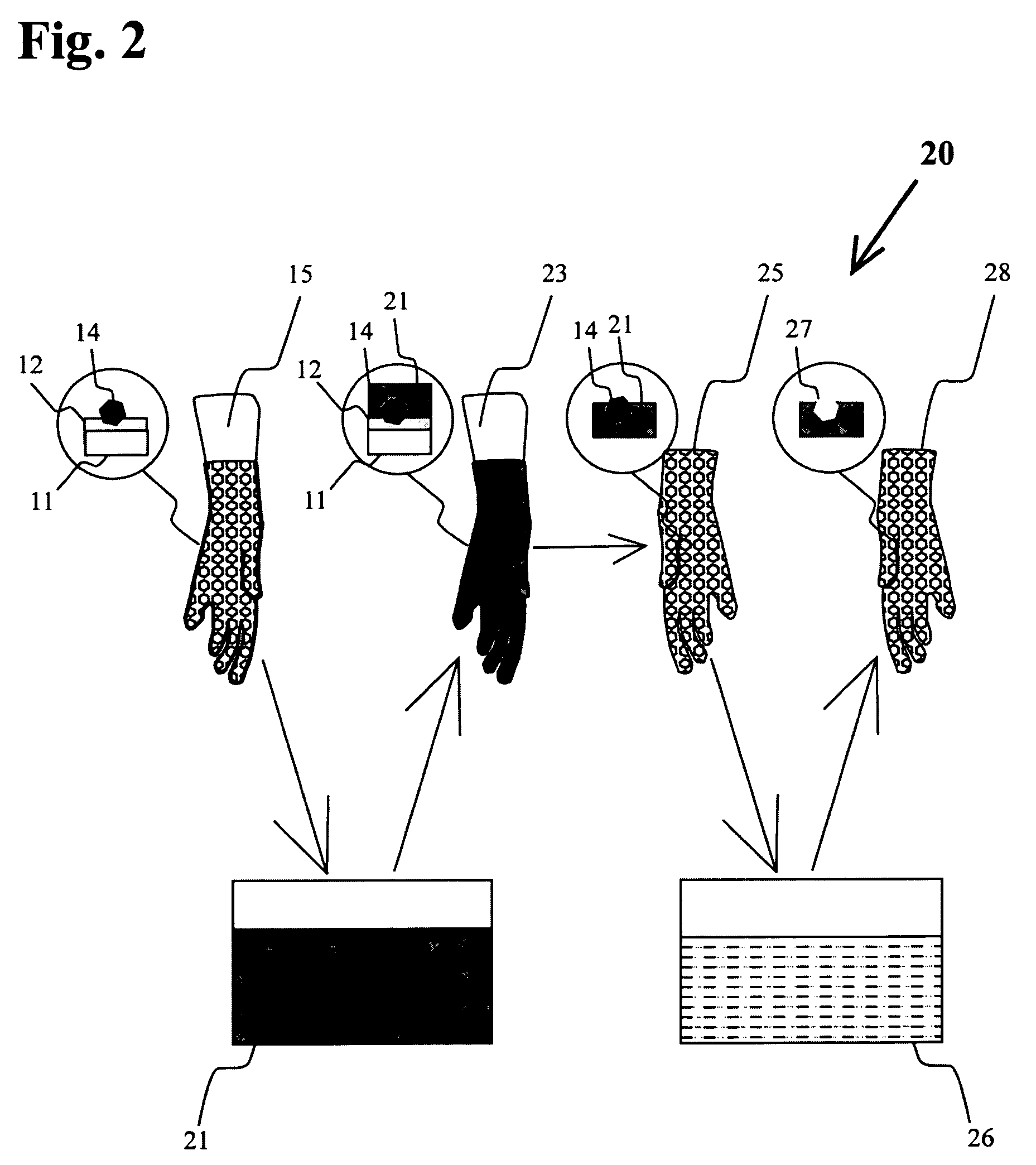Latex gloves and articles with geometrically defined surface texture providing enhanced grip and method for in-line processing thereof
a technology of geometrically defined surface texture and enhanced grip, which is applied in the field of synthetic or natural latex gloves and articles having enhanced gripping characteristics, can solve the problems of tacky polymer coagulant coating, and achieve the effect of enhancing gripping properties
- Summary
- Abstract
- Description
- Claims
- Application Information
AI Technical Summary
Benefits of technology
Problems solved by technology
Method used
Image
Examples
example 2
[0063]Another coagulant was prepared according to the following composition:
[0064]
CompositionDry weight:Calcium Nitrate40.00% Polyethylene glycol 3350 1%PVP copolymer0.50%Surfynol 4650.15%Waterbalance to 100% total weight.
[0065]Similar glove dipping steps were carried out as in Example 1. The sodium chloride discrete coagulant particles had good adhesion to the dry coagulant on the palm and finger surface areas of the former. As the glove was stripped from the former, the glove was turned inside out, and it had a uniform rough texture at the palm and finger areas, although some salt deposit had penetrated through the dried polymeric coagulant coating layer glove causing many tiny pinholes.
example 3
[0066]Another coagulant was prepared according to the following composition:
[0067]
CompositionDry weight:Calcium Nitrate40.00% Polyethylene glycol 3350 1%PVP copolymer1.00%Surfynol 4650.15%Waterbalance to 100% total weight.
[0068]Similar glove dipping steps were carried out as in Examples 1 and 2. A similar observation as in Example 2 was recorded, except that the number of pinholes on gloves produced using this coagulant was reduced drastically as compared to the previous examples.
example 4
[0069]Another coagulant was prepared according to the following composition:
[0070]
CompositionDry weight:Calcium Nitrate40.00% Polyethylene glycol 3350 1%PVP copolymer1.50%Surfynol 4650.15%Waterbalance to 100% total weight.
[0071]After the heated former was dipped into the above coagulant, sodium chloride (300-1630 μ) discrete coagulant particles were manually sprinkled uniformly around the palm and finger areas of the former. The tacky coagulant was able to hold the deposited salts evenly until the former was dipped into the nitrile latex composition as in Example 1. A similar observation as in Examples 2 and 3 was recorded, except that there were a few gloves with pinholes produced using this coagulant, indicating that, if the PVP copolymer film was thicker and the discrete coagulant particles were distributed evenly, the medium to coarse sodium chloride discrete coagulant particles could be embedded into it with minimum impact to the first layer of the nitrile laminate.
[0072]The a...
PUM
| Property | Measurement | Unit |
|---|---|---|
| thickness | aaaaa | aaaaa |
| size | aaaaa | aaaaa |
| diameter | aaaaa | aaaaa |
Abstract
Description
Claims
Application Information
 Login to View More
Login to View More - R&D
- Intellectual Property
- Life Sciences
- Materials
- Tech Scout
- Unparalleled Data Quality
- Higher Quality Content
- 60% Fewer Hallucinations
Browse by: Latest US Patents, China's latest patents, Technical Efficacy Thesaurus, Application Domain, Technology Topic, Popular Technical Reports.
© 2025 PatSnap. All rights reserved.Legal|Privacy policy|Modern Slavery Act Transparency Statement|Sitemap|About US| Contact US: help@patsnap.com



